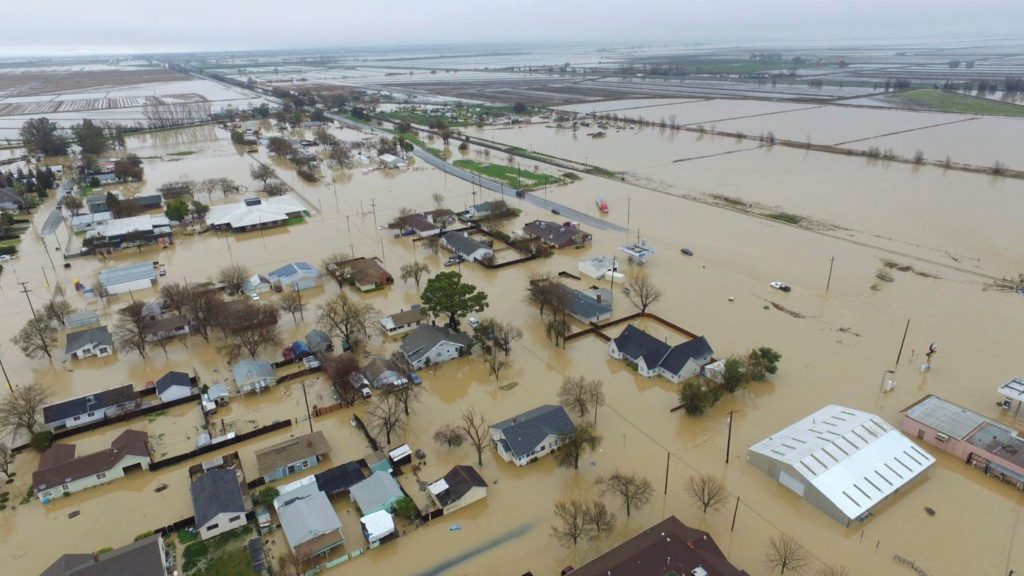In recent years, California has experienced a series of extreme weather events, from scorching wildfires to intense storms, which are increasingly being linked to anthropogenic climate change. Particularly impactful are the atmospheric rivers – long, narrow regions in the atmosphere that transport water vapor from the Pacific Ocean to the Golden State. When these rivers in the sky make landfall, they can cause severe precipitation events, leading to significant flooding. The atmospheric river event of late 2022 offers a significant example. This storm, colloquially known as a “Pineapple Express” due to its origins near Hawaii, brought torrential rain and heavy snowfall to much of California. It was one of the most powerful in recent memory, leading to widespread flooding, power outages, and several fatalities.
Climate scientists have indicated that climate change likely plays a role in intensifying these atmospheric rivers. As global temperatures rise, the atmosphere can hold more moisture, thus when conditions are right, these weather phenomena can dump even more significant amounts of rain or snow over a region. Additionally, rising sea surface temperatures in the Pacific can add more moisture to these systems, further increasing their potential for causing extreme precipitation events. Despite the mounting scientific evidence linking climate change to extreme weather events like those recently experienced in California, denial or downplaying of climate change remains prevalent in some circles. These denials can take many forms, from outright rejection of the evidence to more subtle methods, such as focusing on the uncertainty inherent in climate projections.
However, the consensus among climate scientists is clear: human-induced global warming is real, it is happening now, and it is having a significant impact on the frequency and intensity of extreme weather events. Ignoring or denying these facts can have serious consequences, as it can delay the implementation of vital mitigation and adaptation strategies. The severe storm in California exemplifies the dangers of climate change denial. While deniers can slow down the policy response, extreme weather events continue to occur and may even grow in intensity. If proactive measures are not taken, the damage from these events can be devastating, as shown by the floods and related impacts of the atmospheric river event in California.
The 2022 California storm underscores the urgency of addressing climate change. Instead of denying the overwhelming scientific evidence, efforts should focus on reducing greenhouse gas emissions, investing in renewable energy sources, and implementing measures to make communities more resilient to extreme weather events. Additionally, the public and policymakers need to be educated about the realities of climate change to make informed decisions that will protect the well-being of current and future generations.
Continuing on this trajectory, the effects of climate change denial extend far beyond the direct impacts of extreme weather events. This denial can also affect public policy, economic planning, and even national security.
For instance, climate change denial can stall or obstruct legislation aimed at reducing greenhouse gas emissions, a key driver of global warming. This delay in policy action can have severe repercussions as the window to prevent catastrophic climate change is rapidly closing.
In terms of economic planning, ignoring the potential risks of climate change can lead to investments in industries or infrastructures that are vulnerable to extreme weather events or rising sea levels. For example, a significant portion of California’s infrastructure is not designed to withstand the increased frequency and severity of events like the atmospheric river storm. This includes critical systems like transportation, water supply, and even health care services, all of which are essential for the functioning of the state and the well-being of its citizens. Climate change denial can also pose national security risks. The U.S Department of Defense has recognized climate change as a “threat multiplier” that can exacerbate existing tensions and conflicts around the world. In the context of California, prolonged droughts, exacerbated by climate change, can strain water resources, leading to competition and potential conflict over these increasingly scarce resources.
Despite these risks, the recent California storm also offers lessons and a pathway forward. This event has spurred a renewed emphasis on modernizing and upgrading infrastructure to make it more resilient to extreme weather events. Additionally, it has highlighted the importance of early warning systems and emergency response plans in minimizing the impacts of these events. More broadly, the California case study underscores the importance of embracing the scientific consensus on climate change. This involves not only recognizing the reality and urgency of the situation but also taking meaningful action. This includes cutting greenhouse gas emissions, transitioning to a clean energy economy, and investing in climate-resilient infrastructure.
The challenge is significant, but by rejecting denial and embracing proactive, science-based action, we can mitigate the worst impacts of climate change and build a more sustainable, resilient future. Climate change is not a distant, abstract problem; it is here, and its effects are being felt now. The time for debate has passed; the time for action is now.

